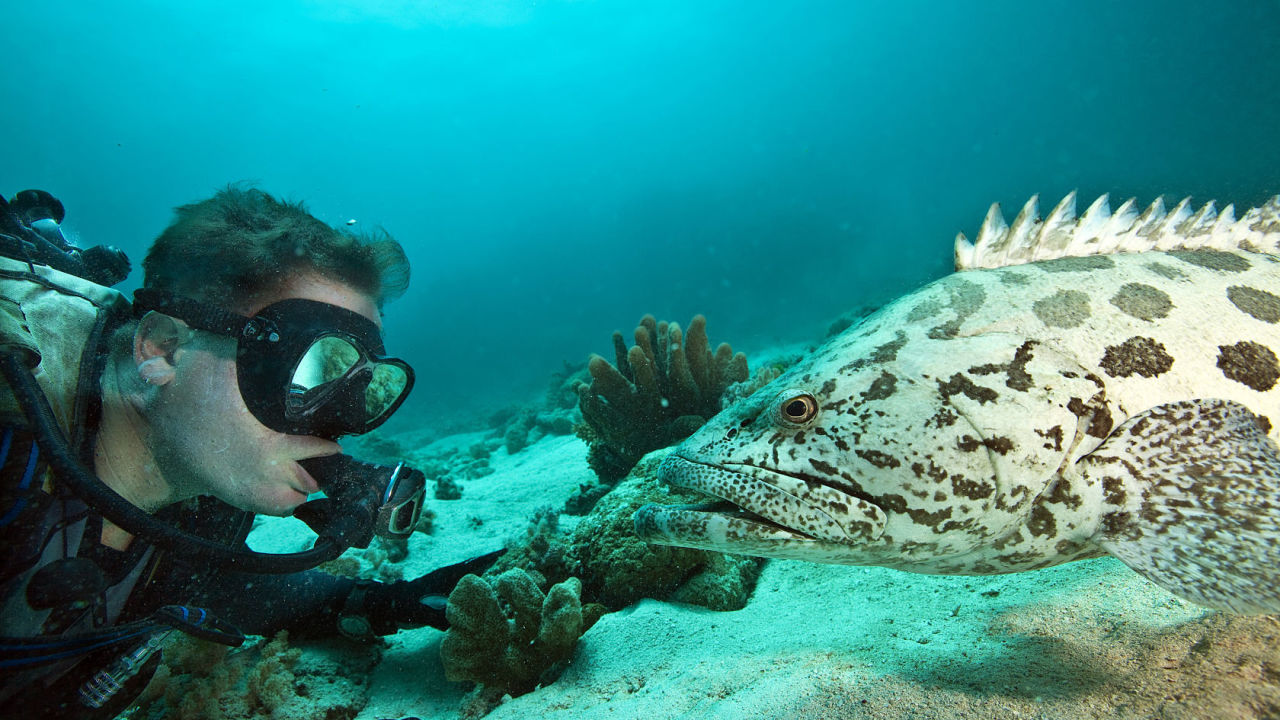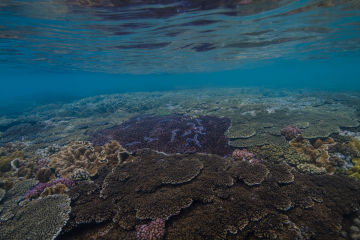Media Release ·
Opinion - Science will lie at the heart of the decisions
GBRF Chief Scientist Peter Mumby

#5 September 2018
GBRF Chief Scientist Prof. Peter Mumby penned an opinion piece for The Conversation which was also published by ABC News and others, ensuring the voice of science is heard.
Read it here or as it appears in The Conversation or ABC online.
Much has been made of the federal government’s decision to invest A$500m into management of the Great Barrier Reef (GBR), A$443.3m of it to be administered by the Great Barrier Reef Foundation, of which I am the chief scientist.
If my conversations with colleagues in the reef research field are any guide, there is still a lot of confusion over the intended use of these funds, the disbursement process, and whether big business will interfere with how the reef is managed.
Filling funding gaps
Over the past five years, the foundation has funded or managed multiple research projects that aim to support long-term management of the reef. Many of these projects would be considered either too risky or not “pure science” enough to be funded by the Australian Research Council (the exception being the ARC Linkage program).
I mean “risky” not in the sense of posing a risk to the GBR, but rather to describe research plans that are at the cutting edge, where the potential rewards are high but so is the risk of failure.
In this way, the GBR Foundation has filled a critical gap in funding researchers who are working at the interface of science, climate change, and reef management. This has included teams from multiple universities, the Australian Institute of Marine Science (AIMS), and CSIRO.
Decisions over funding allocations are made through a conventional procedure involving external and internal review and two scientific advisory committees with representatives from each of the major research organisations (the University of Queensland, James Cook University, AIMS and CSIRO), the Great Barrier Reef Marine Park Authority, and an independent chair.
I accepted this position for several reasons. First, scientists and practitioners have been calling for a major government investment in the GBR and I am keen to help steer the process in the most cost-effective way possible. I can help by ensuring that the right people are engaged in the process and that projects are subject to intense scientific scrutiny.
Second, having been involved with the GBR Foundation for some time, I know that its approach is both inclusive and merit-based, soliciting the best minds irrespective of which insitution they work for. This is important if we are to deliver the best value for taxpayers’ money.
Third, the foundation’s decision-making process is science-led, and I have never seen any interference from the board. Although some people have expressed concerns over the board’s links to the fossil fuel industry, climate change has been the focus of the foundation’s funded research for as long as I can remember.
Funding focus
The government’s decision to entrust environmental management and research to a private foundation is not unprecedented internationally. The US National Fish and Wildlife Foundation, for example, receives funds from both government agencies and private donations, which it uses to fund a range of conservation programs.
The A$443.3m provided to the GBR Foundation is intended to pursue a range of aims:
improving the quality of freshwater reaching the reef (A$201m)
reducing the impact of crown-of-thorns starfish (A$58m)
engaging traditional owners and the broader community in reef conservation (A$22.3m)
improving monitoring of reef health (A$40m)
supporting scientific research into reef restoration, with a specific focus on tackling challenges created by climate change (A$100m).
The latter is particularly significant because this program aims to expand the toolbox of interventions available to reef managers as climate change continues to intensify.
Of course, reef researchers and managers can’t fix climate change on their own. Other funding and incentives will also be needed to help our wider society reduce greenhouse emissions.
But here’s the important point: dealing with climate change will necessitate a wide range of responses, both to address the root cause of the problem and to adapt to its effects. The A$443.3m will help Australia do the latter for the GBR.
Clarifying misconceptions
I’d like to clarify some of the misconceptions I have heard around the funding awarded to the GBR Foundation.
The funds do indeed consider the impacts of climate change, specifically in helping coral reefs - and the associated management practices - adapt to the coming changes.
Science will lie at the heart of the decisions over how best to parcel out the funds, and although the foundation’s board will sign off on the approvals, it will have no say in what is proposed for funding.
Those research and management projects that do receive funding will be carried out by the most appropriate agencies available, whether that be universities, small or large businesses, other charities, AIMS, CSIRO, Natural Resource Management organisations, and so on. All of these agencies are well used to applying for funding under schemes like this.
Finally, I have heard concerns about the involvement of major corporations on the Foundation’s board. Everyone is, of course, entitled to their view on the appropriateness of this. But for what it’s worth, my own is that progress on climate change will be strengthened, not weakened, by a close dialogue between those responsible for managing the impacts of climate change and those in a position to exert significant change in our society.
Many of world’s greatest innovations occur in major industry, and I hope this will also apply to the Great Barrier Reef.




